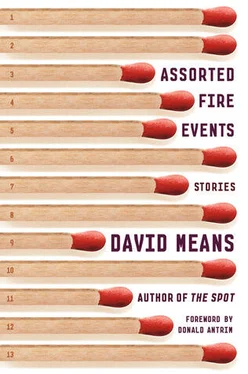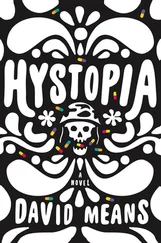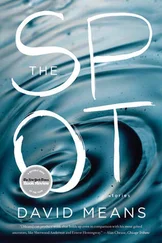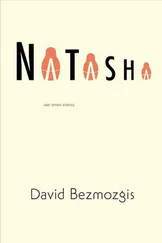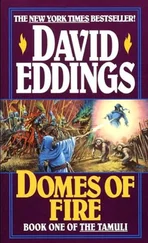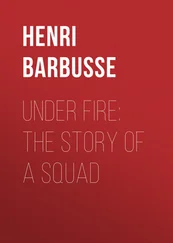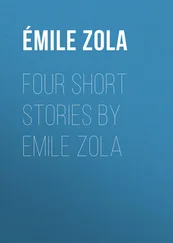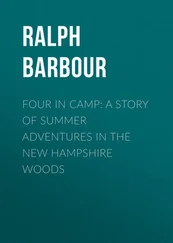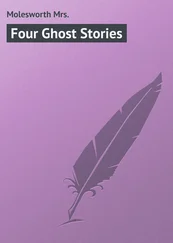David Means - Assorted Fire Events - Stories
Здесь есть возможность читать онлайн «David Means - Assorted Fire Events - Stories» весь текст электронной книги совершенно бесплатно (целиком полную версию без сокращений). В некоторых случаях можно слушать аудио, скачать через торрент в формате fb2 и присутствует краткое содержание. Год выпуска: 2012, Издательство: Faber & Faber, Жанр: Современная проза, на английском языке. Описание произведения, (предисловие) а так же отзывы посетителей доступны на портале библиотеки ЛибКат.
- Название:Assorted Fire Events: Stories
- Автор:
- Издательство:Faber & Faber
- Жанр:
- Год:2012
- ISBN:нет данных
- Рейтинг книги:4 / 5. Голосов: 1
-
Избранное:Добавить в избранное
- Отзывы:
-
Ваша оценка:
- 80
- 1
- 2
- 3
- 4
- 5
Assorted Fire Events: Stories: краткое содержание, описание и аннотация
Предлагаем к чтению аннотацию, описание, краткое содержание или предисловие (зависит от того, что написал сам автор книги «Assorted Fire Events: Stories»). Если вы не нашли необходимую информацию о книге — напишите в комментариях, мы постараемся отыскать её.
won a Los Angeles Times Book Prize, was nominated for a National Book Critics Circle Award, and received tremendous critical praise. Ranging across America, taking in a breathtaking array of voices and experiences, this story collection now stands as one of the finest of our time.
Assorted Fire Events: Stories — читать онлайн бесплатно полную книгу (весь текст) целиком
Ниже представлен текст книги, разбитый по страницам. Система сохранения места последней прочитанной страницы, позволяет с удобством читать онлайн бесплатно книгу «Assorted Fire Events: Stories», без необходимости каждый раз заново искать на чём Вы остановились. Поставьте закладку, и сможете в любой момент перейти на страницу, на которой закончили чтение.
Интервал:
Закладка:
Along the road to Fuente Vaqueros there were cork trees. He pointed them out, long and thin, bent back by the wind. Behind the bus a swirl of dust rose. They visited Lorca’s birthplace. Cool tile floors. The bed where he was rocked. He signed the book — Ron Stanford. Poet. (Soundmixer.)
The river gathers ripples of white — headlights passing over the bridge, beneath the beaded bulbs on the higher reaches. Points along the Westchester shore — parking lots at train stations, house windows, street lamps. It would be precise to say the night is pressing against the windows; there is a soft shudder of giving frames as the wind comes in hard gusts — a cold front, the news said, bringing with it what will certainly be the first snow of the year. Already Buffalo — gulping the moisture of Lake Erie — has ten inches. In a chair, legs curled beneath her, she reads Chekhov in a hardcover edition Ron purchased a month before he got the news. After that he put the book of stories aside: they don’t make sense when I try, he kept saying, and anyway I never liked Chekhov much because he’s too dry, too vestal. The only stories that counted were the messages from the labs; test results became the literature of his life.
Resting against her leg, the phone rings.
Hugh’s voice seems woody and resonate over the phone and she is certain that this is the first time she has really listened to his voice, although they had exchanged bits of talk at the preschool, gathering the boys, and of course the other night, in the bar’s vestibule.
“That’s all right. I mean, sure, I was just sitting here.”
“Oh, I just thought. Well, I wondered if you might want to have a cup of coffee sometime, maybe dinner.”
“I’d like that,” she says, holding the phone against her ear with her shoulder, walking to the window, seeing the shroud of her face until she’s close enough to see the lights and the water and the bridge.
“I wasn’t sure if you’d be. Well, I mean I wasn’t certain if this was exactly the right time and everything.”
He seems eager to get off the phone, but a date had to be set.
“I have a sitter. Jenny. So any night’s fine,” she says.
“All right then.”
They settle on the next Wednesday, December 12, and she pauses long enough to make him think she is penciling it in because she says, “I’ll pencil it in and call Jenny,” and as soon as the phone is back in the cradle she picks it up again and calls Jenny.
“I have this tape,” she tells Meg in the kitchen. They’re sipping coffee, lifting the cups slowly. An old river house, the kitchen is on the bottom floor. A barge lulls up the river outside.
“Of me and Ron, on our honeymoon. Doing it.”
Meg sips her coffee, draws a finger across one brow, and looks away from Grace out at the bare dirt of the garden and past that to the line of marl formed by the outgoing tide. The sun glimmers off the slick muck.
“He’s not even cold yet,” Meg says, lightly enough to make it a joke.
Grace imagines the steaming corpse up on the hill behind the hospital, buried with celebrities and nonentities alike. Steam rising up through the thick soil and the tree roots and the burlap winter turf. Meg looks at the tape, lifts it into her fingers. Her nails are long but she knows how to handle things with them.
“Can you, like, see much?”
“See much?”
“Yeah, I mean I tried that once with — what’s his name? — well, we could hardly make anything out, really.”
“Well, we used an old camera, and the lighting sucked, but it’s pretty clear what’s going on.”
“What are you going to do with it?”
“I don’t know.”
Meg stands, smooths down the sides of her skirt and looks out again at the view, and then goes into the playroom.
“Maybe you should toss it,” she says, coming back with Billy, zipping his coat up to his chin. Billy looks at them betrayed, and says, “I don’t wanna go. I don’t wanna go. I don’t wanna go.”
“We’ve gotta go or we’re not going to make it to Dr. Drake’s,” Meg says. She leans close to Grace and whispers, “He’s got a series of booster shots to look forward to.”
There will be a cocksure quality to Hugh’s voice; he’ll be wearing a brown tweed sports coat and a unfashionable wide tie of navy blue and red stripes; he’ll have the leathery skin of a man who spends time outdoors; his knuckles have thick wrinkles that disappear when he makes a fist, and he has the kind of hands, fingers wide, flat-tipped, that can wield a pick with ease, clutch hunks of igneous rock, fist shale samples. Of course his interests will be varied and he’ll say to her that he — tike she — is very interested in music, and she’ll say that she was a music major in college, even did some composing afterwards, a few pieces for piano, one for a small ensemble orchestra preformed at a new music festival in Brooklyn before the kids came along and she gave it up, or rather sidetracked it, put it on the back burner. He’ll mention his theory on Glenn Gould’s Bach, that the very secret to the universe lies between the discourse — the give and take between voices — on his Goldberg Variation, the first fast mono one, not the later one where he slowed stuff down and made even more noise — creak of his seat and his perpetual hem and haw along with himself, and that it has something to do with the way Gould pointed the notes, plucked them, and never used his sustain pedal. Hugh get misty-eyed just talking about it. She’ll gently mock him by mentioning how fashionable it has become to love Gould. He’s hip, she’ll say. There was that movie about his life. Drugs did him in. He did drugs in. Everything as fine as his playing gets twisted by fashion, turned into a prop, a commodity, a slot. Nodding and agreeing, he’ll mention his love of Indian myths, Native American stories — whatever the hell you want to call the lore of dispossessed progenitors … After dinner they’ll have a cognac at the bar downstairs before they pass out into the cold, newly fallen snow. First storm of the year. The roads shut down. The sidewalks empty. He’ll walk her to the house — his own is up the hill, and he’ll have to backtrack to get home, but he’ll insist he doesn’t mind. When they get to her house, Jenny, lying on the couch but not asleep, will sit up but not stand when she sees him. She occasionally babysits for Hugh’s youngest boy — but suddenly he seems unfamiliar. She’ll nod the way you’d nod to a passing stranger (“He was coughing a bit. He’s getting something,” she’ll say.) Down in the kitchen — getting her boots on — Jenny will ask, How was your date? In a soft, conspiratorial voice. His footsteps thud overhead as he moves around in front of the bookshelves, poking titles with one of his fingers It was fine. All right. She’ll try hard not to connect with Jenny’s eyes, beset with a calm judgmental passivity. He’ll be sitting in the big reading chair when she goes back up the stairs; he’ll be fingering a copy of Dubliners , flicking the pages with his thumb as if he were speed reading the thing (or perhaps a book of Eliot poems; or Gary’s battered Winnie the Pooh-anything really to indicate a secondary interest in books, to divide his attention); he’s moving his eyes over her black turtleneck sweater, licking the smooth underside of her chin with his glance — and that’s how she’ll think of it, later, feeling his groping finger spider over her bra clasp; it’s all right to lick someone with your eyes, to manifest your touch in different ways. What one might see as succumbing — swiftly undressing, actually helping him figure out the arrangement of the little hooks, laughing lightly at it, letting him enter her after only a few minutes of foreplay, his hands ungraceful and stupid in their windshield-wiper waves across her breasts. What one might see as a betrayal of Ron, might for her be nothing but a decisive fake to the universe. A grace. A giving to her pain. The tightness in her throat finally easing after two months. The gooseflesh along the inside of her arm, a cool tingle of nerves, fading with orgasm.
Читать дальшеИнтервал:
Закладка:
Похожие книги на «Assorted Fire Events: Stories»
Представляем Вашему вниманию похожие книги на «Assorted Fire Events: Stories» списком для выбора. Мы отобрали схожую по названию и смыслу литературу в надежде предоставить читателям больше вариантов отыскать новые, интересные, ещё непрочитанные произведения.
Обсуждение, отзывы о книге «Assorted Fire Events: Stories» и просто собственные мнения читателей. Оставьте ваши комментарии, напишите, что Вы думаете о произведении, его смысле или главных героях. Укажите что конкретно понравилось, а что нет, и почему Вы так считаете.
